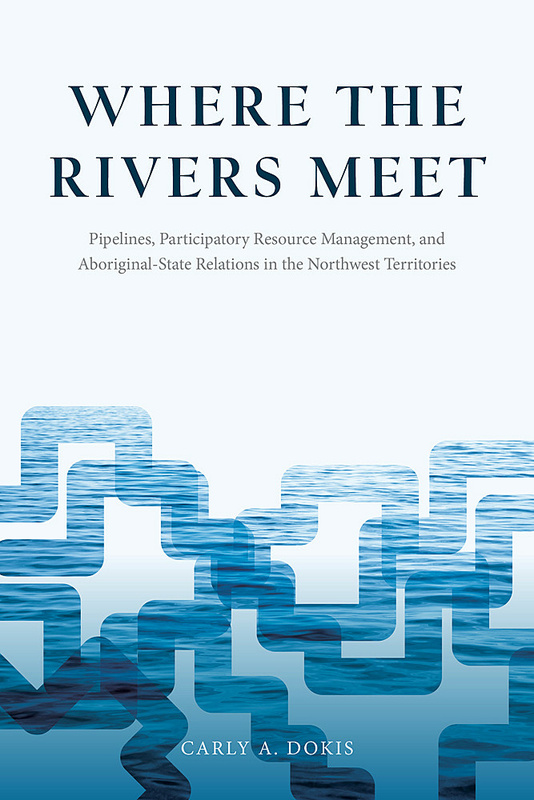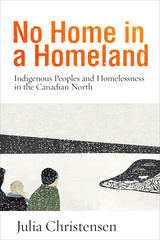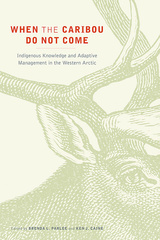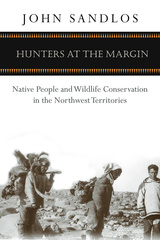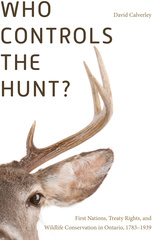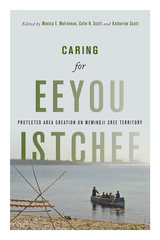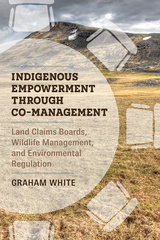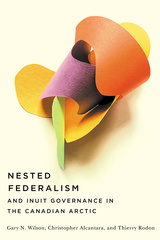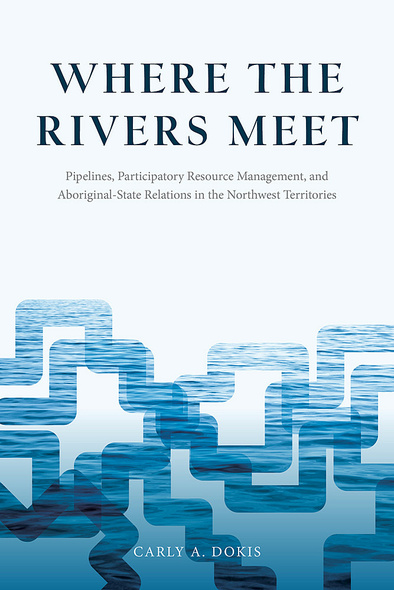
Where the Rivers Meet
Pipelines, Participatory Resource Management, and Aboriginal-State Relations in the Northwest Territories
Oil and gas companies now recognize that industrial projects in the Canadian North can only succeed if Aboriginal communities are involved in the assessment of project impacts. Are Aboriginal concerns appropriately addressed through current consultation and participatory processes? Or is the very act of participation used as a means to legitimize project approvals?
Where the Rivers Meet is an ethnographic account of Sahtu Dene involvement in the environmental assessment of the Mackenzie Gas Project, a massive pipeline that, if completed, would transport gas from the western subarctic to Alberta, and would have unprecedented effects on Aboriginal communities in the North.
Carly A. Dokis reveals that while there has been some progress in establishing avenues for Dene participation in decision making, the structure of participatory and consultation processes fails to meet expectations of local people by requiring them to participate in ways that are incommensurable with their experiential knowledge and understandings of the environment. Ultimately, Dokis finds that despite Aboriginal involvement, the evaluation of such projects remains rooted in non-local beliefs about the nature of the environment, the commodification of land, and the inevitability of a hydrocarbon-based economy.
This book will appeal to scholars and students of Indigenous studies, anthropology, natural resource management, and environmental history, as well as to anyone working in environmental management, resource extraction, or with Aboriginal people in the Canadian North.
This book represents a significant contribution to our understanding of barriers to procedural justice in Aboriginal communities, and it offers important lessons for regulators, policy makers, and rights advocates well beyond the Northwest Territories. Senior undergraduate or graduate students interested in anthropology, indigenous studies, or political ecology will find the work accessible and very relevant to the contemporary history of development on aboriginal lands.
In this important book, Carly Dokis makes a significant contribution to our understanding of Indigenous-state-corporate relations and the nature of participatory assessment processes in Canada. In particular, her critique of how governments and corporations ‘consult’ with First Nations in the post–land claim era – and her analysis of how such consultation processes have evolved and been co-opted in the decades following the Berger Inquiry – is a must-read for scholars, policy makers, and proponents of development across Canada and elsewhere.
Where the Rivers Meet addresses questions of growing national and international significance: arctic and subarctic gas exploration in an era when Canada has acknowledged the ‘duty to consult’ Aboriginal communities as a fiduciary obligation. Drawing on ethnographic research in three sub-arctic communities, Carly Dokis artfully documents how this process continually fails to engage northern First Nations in locally meaningful ways.
Where the Rivers Meet makes the important point that the effects of oil and gas projects ‘are not only economic or political or environmental but also profoundly moral matters ... As Dokis reminds us, they involve questions about what is valuable and meaningful, consideration for the preferred modes of living of different groups within the country, and thoughtfulness about how persons and environments should be treated.’
Foreword: The Paradoxical Politics of Participatory Praxis / Graeme Wynn
Preface
Introduction: People, Land, and Pipelines
1 “Very Nice Talk in a Very Beautiful Way”: The Community Hearing Process
2 “A Billion Dollars Cannot Create a Moose”: Perceptions of Industrial Impacts
3 Life under the Comprehensive Claim Agreement
4 Consultation and Other Legitimating Practices
Conclusion: The Politics of Participation
Notes
References
Index

